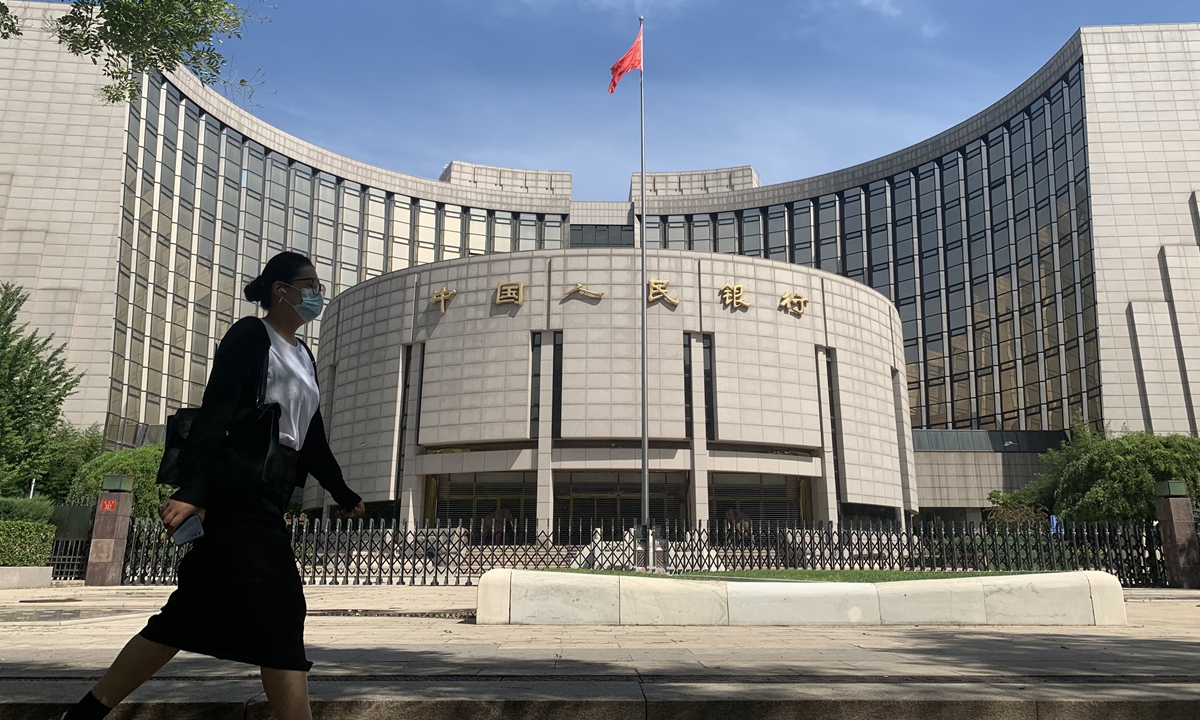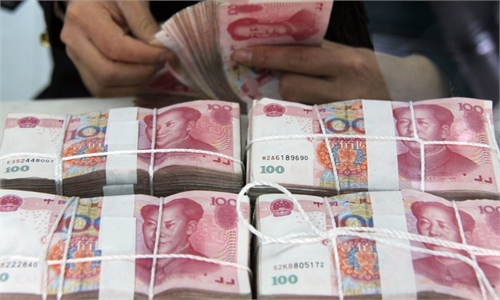
A view of the PBC building in Beijing Photo: VCG
The People's Bank of China (PBC), China’s central bank, will cut the reserve requirement ratio (RRR) for all banks by 50 basis points, the amount of cash that banks must hold as reserves, from February 5, providing the market with approximately 1 trillion yuan ($141.05 billion) of long-term liquidity, PBC governor Pan Gongsheng announced on Wednesday.
The central bank will also reduce the interest rates for reloans and rediscounts to support agriculture and small businesses by 0.25 percentage points from Thursday, Pan added.
The 50 basis points cut in the RRR is beyond expectations and demonstrates significant support of monetary policy in the real economy, Zhou Maohua, a macro economist at China Everbright Bank told the Global Times on Wednesday.
The RRR cut which is announced at the start of the year will also instill optimism in the market and accelerate the pace of economic revival, Zhou added.
Buoyed by the news, Hong Kong stock market closed higher on Wednesday, with the Hang Seng Index rising 3.56 percent and the Hang Seng Tech Index gaining 4.24 percent. A-shares also experienced a rebound on Wednesday, with all three major indexes closing higher.
By further reducing the RRR, the central bank is providing additional support to the real economy, which will also help stabilize the yuan exchange rate and enhance expectations for economic and real estate recovery, Zhou said.
Addressing the property market, Pan said that the PBC, together with the National Financial Regulatory Administration will introduce policies to improve loan conditions for real estate companies' operational properties. These policies aim to support high-quality real estate enterprises in utilizing their existing assets, expanding the scope of fund usage, and improving their liquidity situation.
Pan said that the PBC will ramp up macroeconomic regulation, strengthen counter-cyclical and cross-cyclical adjustments to create a favorable monetary and financial environment for economic operation.
“There is still enough room for monetary policy,” Pan said.
Additionally, Pan said that spillover effect of monetary policy in developed economies and the divergence between the monetary policy cycles of China and the US will tend to ease in 2024, which will broaden the room of China's monetary policy operation.
Interest rate cuts and structural tools remain available in the central bank's toolbox, and there is still room for a certain degree of cutting to loan prime rates in 2024, Zhou said.

